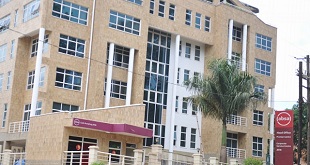LONDON, October 12, 2023 – The 2023 Absa Africa Financial Markets Index [AFMI] reveals there has been continued progress in developing financial markets across Africa in the past year, with many of the participating countries taking steps to bolster their resilience against global market shocks.
Now in its seventh year, the index scores African countries’ financial development based on measures of market accessibility, openness and transparency. With support from the United Nations Economic Commission for Africa [UNECA], coverage in this year’s report has grown to 28 economies with the addition of Cabo Verde and Tunisia. The aim of the report is to show how countries can reduce barriers to investment and boost sustainable growth.
To construct the index, the Official Monetary Financial Institutions Forum [OMFIF] conducted extensive quantitative research and data analysis with surveys of over 50 organisations across Africa, including central banks, securities exchanges, regulators and market participants.
For the second year running, scores have risen for the majority of AFMI countries. They increased in 15 countries largely due to an improvement in market transparency, particularly a rise in the number of credit ratings. Most countries also score higher as macroeconomic conditions have generally stabilised following shocks from the pandemic and the Russia-Ukraine conflict.
Key findings from the index include:
Among the biggest improvements were Zimbabwe and Rwanda, rising by almost two points each overall, linked to progress in building sustainable financial market frameworks.
The majority [71 percent] of AFMI countries now implement some form of environmental, social and governance initiatives, up from 57 percent in 2021. This is helping to mobilise new investment as sustainability becomes increasingly important to global investors.
Survey respondents in nine AFMI countries mentioned measures for improving central security depositories to enhance efficiency.
New assets are becoming available on domestic exchanges, including the first sukuk bonds in South Africa and Tanzania.
While not directly impacting scores, survey participants mentioned various financial inclusion policies to boost local investor capacity.
Progress in the index not uniform
However, progress in the index has not been uniform. Each country experienced a lower score in at least one of the six pillars that make up the report. This is mainly due to unfavourable global conditions outside of African policy-makers’ direct control. Rising interest rates in advanced economies have prompted exchange rate depreciation, capital outflows and weaker foreign exchange reserves across Africa. The challenging global environment has also impacted liquidity and the size of domestic financial markets.
The underlying message is one of slow progress in building capital markets. In 17 countries, scores are higher this year than when they were first introduced to the index. But there is a wide gap between the highest scoring countries and the rest. Only the top five score above 60. South Africa and Mauritius remain the only countries to score above 70 – as has been the case since 2019. This suggests there is plenty of scope for further improvement across the continent.
Charles Russon, chief executive officer, Absa Corporate and Investment Bank said, “Global markets have faced challenge after challenge in recent years, pushing many countries into “crisis mode”, focusing their efforts on dealing with the next problem and putting long-term structural reform on the back burner. Now in its seventh year, this index shows promising signs that Africa’s financial markets are weathering the storm, revealing how economies can supercharge sustainable growth despite the difficult global macroeconomic environment.”
“Progress in ESG [Environmental, social, and corporate governance]investments, boosting market transparency and improving central security depositories are cementing Africa as a destination for capital investment. We look forward to continuing to break down barriers to investment and improve Africa’s financial resilience,” Russon said.
Buy your copy of thecooperator magazine from one of our country-wide vending points or an e-copy on emag.thecooperator.news
